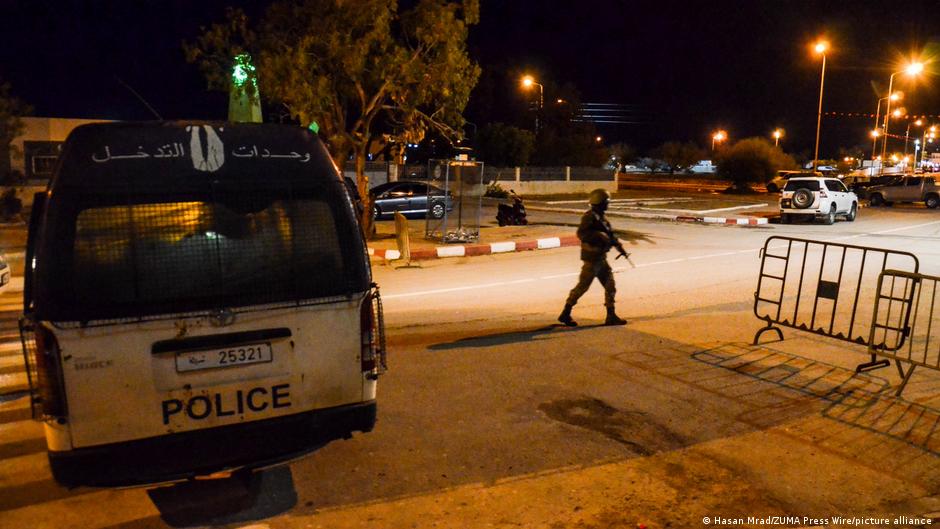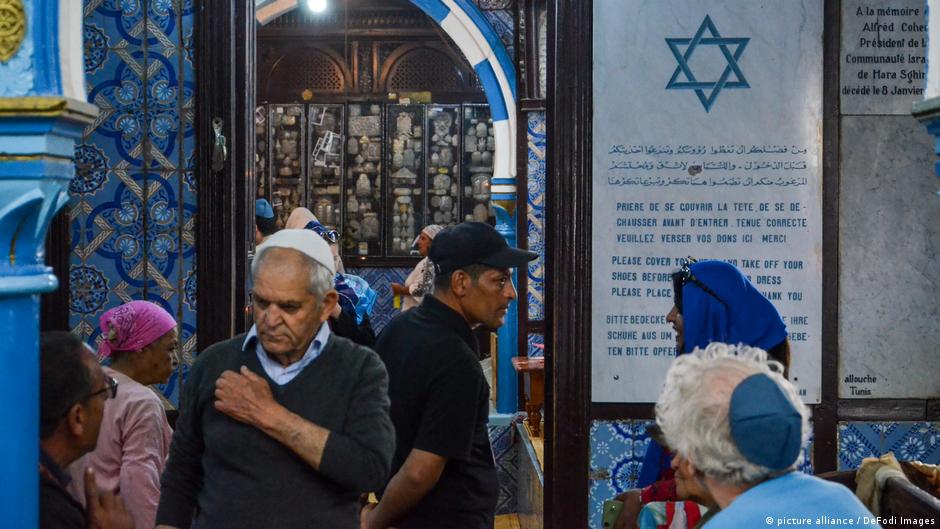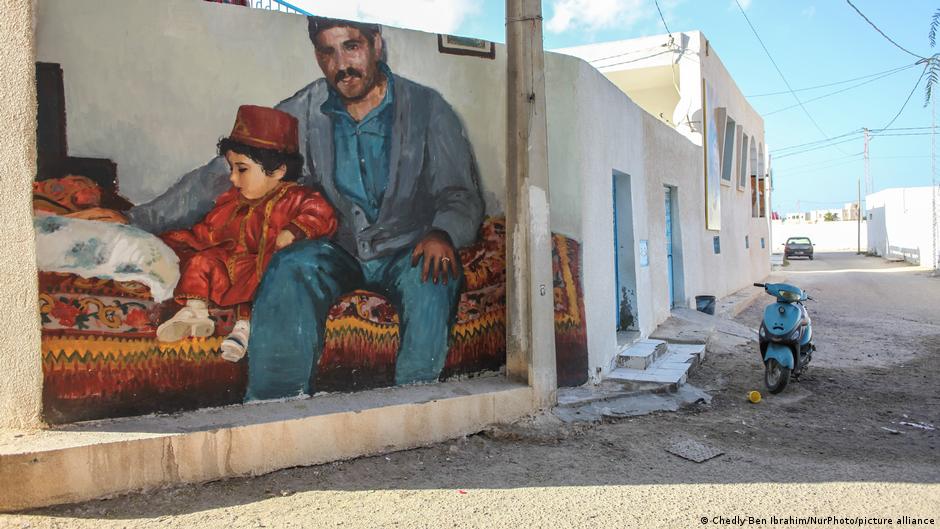What next for Djerba?

Every year, thousands of visitors make their pilgrimage to the popular holiday island off the coast of southern Tunisia. Many are Tunisian Jews returning home after emigrating, but the island is celebrated for welcoming all comers. The festival, as well as the island's own community, is often held up as an example of how the different religious communities on the island co-exist peacefully. Around 7,000 people were expected this month, according to the Tunis Afrique Presse news agency.
Yet this year's festival was violently interrupted on its last day – 10 May – when a gunman opened fire near the historic synagogue. The guard, who was affiliated with a naval centre on the island, shot a colleague in the head, took his weapon and ammunition, then headed toward the synagogue on a quad bike, where he began firing indiscriminately at other security officers. Visitors inside the synagogue were locked in during the attacks, but were unhurt. The motive for the shooting is as yet unknown.
'A miracle I survived'
Michael Hanna was one festivalgoer who accidentally found himself in the midst of it all. His wife was feeling ill, so he had left the synagogue to take her home. His two sons stayed behind. "Then I went back to enjoy the rest of the evening with my children," recalls Hanna. "But as soon as I got to the gate, bullets started to fly in every direction. A bullet hit the beer bottle in my hand," he exclaimed. "I thought I was about to die. It's a miracle I survived."

Others did not. The gunman killed two security officers, as well as cousins aged 30 and 42, who were standing in the carpark. One of the cousins was an island local, while the other lived in France. Local security forces returned fire, killing the gunman. The total death toll from the incident was six, including the attacker, with around 10 injured.
Hanna knows he was incredibly lucky, and expressed concern about what he sees as the deteriorating security in Tunisia in general. "The situation was much better before 2011," he said, referring to Tunisia's popular revolution, part of the so-called Arab Spring, which toppled the country's long-standing dictator, Zine El Abidine Ben Ali. "That at least counts as a positive during Ben Ali's time."
Tunisia is currently being run by the increasingly autocratic President Kais Saied, who dissolved the country's parliament in March last year and who has lately started arresting political opponents. Tunisia is also dealing with an economic crisis that Saied has been unable to resolve.
The Djerba island pilgrimage is seen as an annual test for Tunisian security forces. Security has been very tight at the event ever since an extremist attack on the island in 2002. In that assault, which was later claimed by the terror group al-Qaida, a truck bomb exploded at the entrance to the synagogue, killing 21. Most of the dead were Germans.
Motive under investigation
Tunisia's Interior Ministry said in a statement that it had started an investigation "to find out the reasons for this treacherous and cowardly attack". Because of the religious nature of the event and the location of the attack, however, some observers – including expats from the Tunisian Jewish community now living in France – speculated the gunman was deliberately targeting the island's Jewish community.
After the shooting, The Jerusalem Post, a widely-read conservative media outlet based in Israel, reported that Israeli authorities and The Jewish Agency for Israel, which facilitates immigration of the Jewish diaspora into the Middle Eastern nation, had "been monitoring a serious threat against the Jewish community in Djerba for a number of months". There was "a secret plan for massive aliyah [emigration] from Tunisia, but it is unclear if Jewish community members are interested in immigrating to Israel", the newspaper wrote.

A senior official at The Jewish Agency, speaking from Jerusalem on background, denied any such plan. "We see a few members of the [Tunisian Jewish] community moving to Israel every year," the official confirmed. But the numbers are small because the Jewish community in Tunisia is not large, the person noted. The number of people coming from Tunisia has remained steady over the past few years. "Others [from Tunisia] also move to France, the U.S., or other countries, but we obviously don't have the statistics for that. What we do see though, is that numbers in the community are dwindling," the official added.
There are somewhere between 1,200 and 1,500 Jewish Tunisians today, most of them living on Djerba. In the 1940s, there were an estimated 5,000 in Djerba's Jewish community, but regional tensions after World War II, around the establishment of the state of Israel, saw community members begin leaving the country. Today, Tunisia's ongoing political and economic crisis could also be a motivating factor when considering emigration, The Jewish Agency official suggested.
"Since the morning, my children have been begging me to leave Tunisia quickly and return to France," said Charlie Perez, who is in his 70s, speaking from his hotel balcony. "But I swear I will not leave Tunisia," said Perez, who divides his time between Tunisia and France and who said he never misses the Djerba pilgrimage and related festivities if he can help it. "I asked them: why do you want me to leave? There are so many attacks all over the world [...] I actually feel safer in Tunisia than in Tel Aviv."
Saied: Differentiate between Jewish faith and Israel
In January 2021, the Tunisian president was recorded making allegedly anti-Semitic comments as he tried to calm rioters protesting the country's economic situation. Saied himself has denied making the comments and reports by The Associated Press noted Saied was wearing a medical mask at the time and "was not always fully audible in the recording". A later statement from his office noted that Saied had then spoken with Tunisia's chief rabbi to assure him that Tunisian Jews would enjoy "the solicitude and protection of the Tunisian state, like all other citizens."
Saied also said it was important to differentiate between people of Jewish faith and freedom of religion in Tunisia, and the policies of the Israeli government on Palestinian rights, of which he was highly critical. Saied has been opposed to any normalisation of relations with Israel, but that has not prevented ordinary Israelis from travelling to Tunisia. Tour organisers have previously confirmed that hundreds of visitors come from Israel to Djerba every year, usually via a third country because there are no direct flights between Israel and Tunisia.
#Tunisia: 5 tourist buses carrying 240 visitors of #ElGhriba Synagogue arrived on Wednesday afternoon in #Gabes on a sightseeing tour & to visit Rabbi Yossef el Maarabi's grave in #ElHamma, said a local source, adding 400 to 500 visitors headed to the city in last 3 days. #TAP_En pic.twitter.com/YK8wj4F5VR
— TAP news agency (@TapNewsAgency) May 10, 2023
The Djerba pilgrimage and tourism in general offer an important source of revenue for all locals, whatever their religion. Past extremist attacks, then the COVID-19 pandemic and more recently the war in Ukraine have devastated many Tunisian businesses dependent on this sector. Many had high hopes for this summer's income and, after last week's shooting, Tunisian officials rushed to reassure prospective visitors that it was still safe to holiday there.
Now, on Djerba, shocked residents are waiting to see how this impacts the season, local man Qais Alawi said. Alawi himself was between hospitality jobs and had planned to start work at another hotel soon; he hopes he'll still be able to. "The political or international repercussions of this don't worry the residents here on the island much," Alawi said. "Everyone is waiting to see how the tourists react and whether there will be a wave of cancellations. There's imminent danger to hotels and jobs here now," he said.
French restaurateur Marco Zagdovd, who regularly helps organise a procession during the Djerba pilgrimage and also helps collect donations for the El Ghriba synagogue, said he was determined to keep coming, despite this week's events. "Tunisia is a hospitable country and the people here are so sorry about this," he said. "We are surrounded by people who have come to support us and offer us solace."
Cathrin Schaer & Tarak Guizani
© Deutsche Welle 2023
